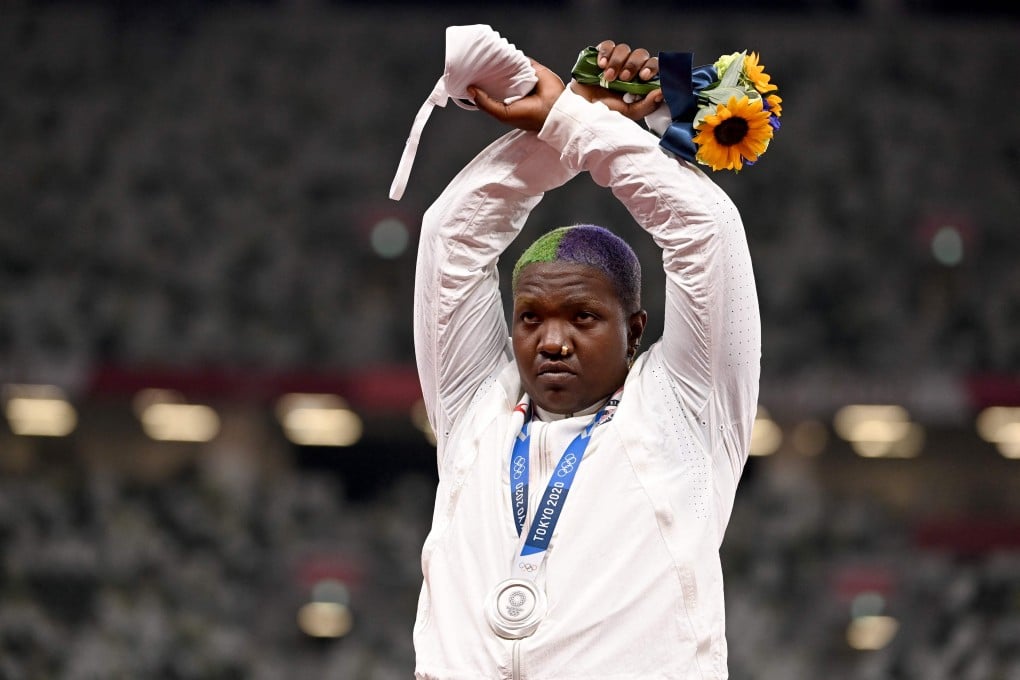Tokyo Olympics: athletes protest in creative ways to sidestep Rule 50 and express their views
- The IOC’s controversial Rule 50 bans athletes from demonstrating or engaging in propaganda during competition and on the podium but many do it anyway
- The Olympic Games offer a rare and effective platform to reach millions of people watching around the world, and some athletes simply cannot resist

However politically neutral the International Olympic Committee (IOC) says it is, the Games has always been a platform for protest in its various forms.
From boycotting the Games, to taking a knee, to gestures on the podium – athletes throughout history have found ways to make their voices heard.
In a controversial statement by the IOC in April, protests on podiums remained banned, with the committee’s Rule 50 barring any kind of “demonstration or political, religious or racial propaganda” at the Games.
Despite these regulations, here’s how some athletes have continued to use this international platform to raise awareness for a number of social issues.
Raven Saunders’ X sign podium protest
US shot putter Raven Saunders crossed her arms above her head after receiving her silver medal on the podium, saying it represented “the intersection of where all people who are oppressed meet”.